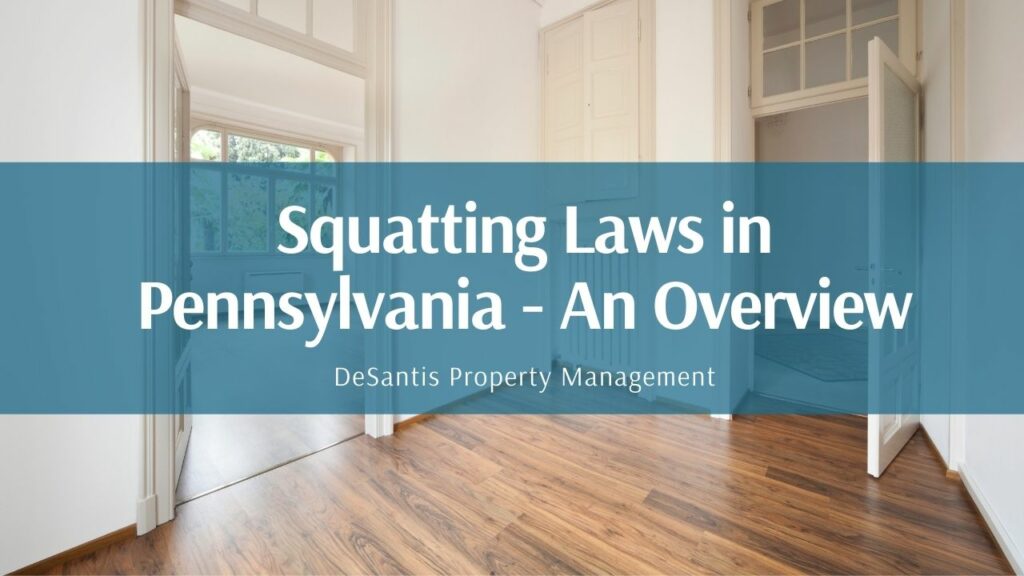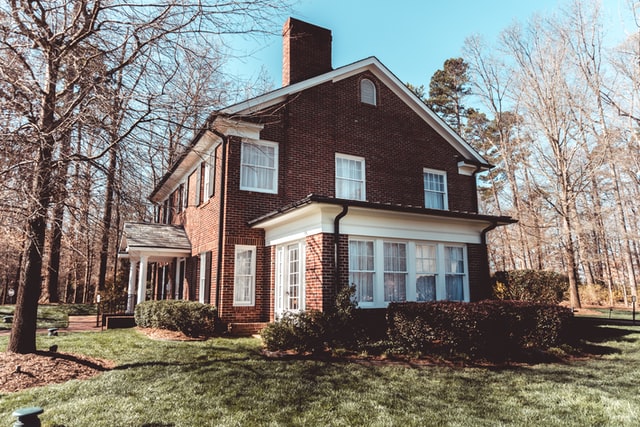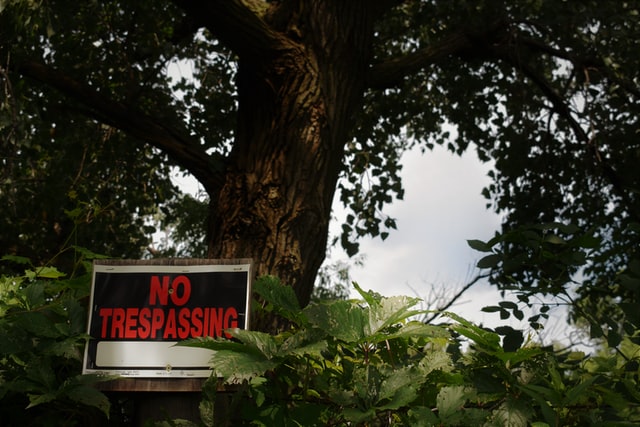Squatting Laws in Pennsylvania – An Overview

Squatters in the U.S. have rights, and those in Pennsylvania aren’t an exception. If a squatter can meet a set of guidelines as outlined by the state of Pennsylvania, they may be able to own your property legally.
Are you are an absentee landlord? If you are, then you need to familiarize yourself with the state’s squatters’ rights to prevent a stranger from owning your property through adverse means.
What are Squatter’s Rights in Pennsylvania?
A squatter needs to meet certain requirements to own the property legally. In the state of Pennsylvania, the requirements are as follows:
1. Continuous Occupation
A squatter must stay for a certain continuous duration of time to be eligible to file an adverse possession claim. In Pennsylvania, a squatter will need to have occupied the property for at least 21 years to file a claim.
This entire period must also be uninterrupted. The squatter must not have abandoned the property during those 21 years. Even leaving for a week can render their adverse possession claim null and void.
2. Actual Possession
Another requirement under adverse possession laws is ‘Actual Possession.’ The squatter must have a physical presence on the property. In addition, they must also treat the property as if they were the actual owner.
The squatter can establish actual possession by documenting certain efforts including performing regular maintenance, cleaning up the property, and making beautification efforts.

3. Open & Notorious
The squatter must also make their occupation obvious to anyone including neighbors and even the actual property owner. If a squatter tries to hide their occupation of the property, their adverse possession claim would fail.
4. Exclusive Possession
The squatter seeking to own the property through adverse means must also prove ‘exclusive possession’. Exclusive possession means that they must be the only occupants of the property.
5. Hostile Claim
In property law, ‘hostile’ takes a different meaning from the conventional one. When it comes to squatters’ rights, it takes on three different meanings:
- Simple Occupation – This defines ‘hostile’ as mere property occupation. The squatter occupying the property may or may not know who the land belongs to.
- Awareness of Trespassing – According to this definition, the squatter is assumed to know that their actions amount to trespassing. In other words, they must know that they don’t have a legal right to occupy the property.
- Good Faith Mistake – Only a handful of states follow this definition. Here, the trespasser is assumed to have made a good faith mistake by occupying the property. The deed in their possession may in this case be invalid or incorrect without them knowing it.

How to Prevent Squatters from Entering your Property
If you are an absentee landlord, the good news is that there are steps you can take to prevent squatters from entering your property. They are as follows:
- Have the property inspected regularly. If you aren’t in a position to do that yourself, then make sure to have someone who can. Ideally, hire a professional such as a property management company.
- Post “No Trespassing” signs all over the property. This precaution confirms private ownership. By posting these signs, it warns would-be trespassers and protects you against possible lawsuits.
- Secure all entrances to the property. Lock every door, close all windows, and even check that the attic is inaccessible.
- Serve a written notice to a squatter the moment you realize their presence.
- Offer to rent out the property to the squatter. While this can seem counterproductive at that moment, it can save you valuable time and money in the long run. By renting them the property, their stay will be limited to a certain period under the lease.
- Call the sheriff to remove them from your property. Be sure that when seeking to remove squatters you follow the proper legal procedures.
- Hire a property management company to help you find a reliable tenant to rent the property to. If your property is vacant, renting it out can be the best solution. Besides, it can open another revenue stream for you.

How to Remove Squatters from your Pennsylvania Property
It’s imperative to remove squatters from your property before they can gain squatter’s rights. Pennsylvania has some special laws on squatter removal that vary based on location. As such, in some instances, a judicial eviction may become necessary to evict a squatter.
In Philadelphia, for example, a property owner needs to file an affidavit stating they are the rightful owners of the property and therefore the squatter doesn’t have a right to be there. Next, they’ll need to move to the Common Pleas Court and schedule a civil hearing.
If the court rules in their favor, the squatter will be ordered to leave. The judge may even sentence the squatter to 90 days in prison. Note that not all cities will have special ejectment processes. In such cases, a property owner will need to follow the state’s eviction process. Which, will begin by them serving the squatter with an eviction notice.
They’ll need to serve the squatter with a 10-Day Notice to Vacate. In the notice, they must remember to include the unpaid rent and late fees the squatter needs to pay to stay on the property. Most squatters will not make the payment.

After the lapse of the 10 days, they’ll need to go to the county court and file a legal eviction. The squatter will most likely not have a defense against the eviction and the judgment will be in the owner’s favor.
Summary
As a rental property owner, it’s important to understand squatter’s rights to protect your property and your investment. You must also familiarize yourself with landlord-tenant laws in your state, security deposit law, rent increase policies, and more. If this seems daunting, reach out to an expert property management company for help.
At DeSantis Property Management, we’re well-versed in Pennsylvania rental laws. We can help you avoid issues with squatters by renting out your property to a reliable tenant. Get in touch to learn more about our services!
Disclaimer: This article should not be used as a substitute for professional legal advice. Please contact a licensed attorney or property management company is you have any questions.
